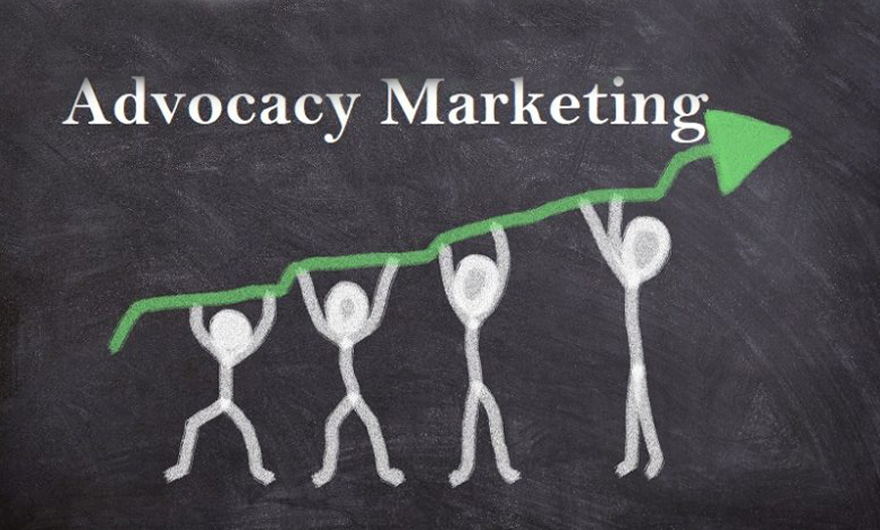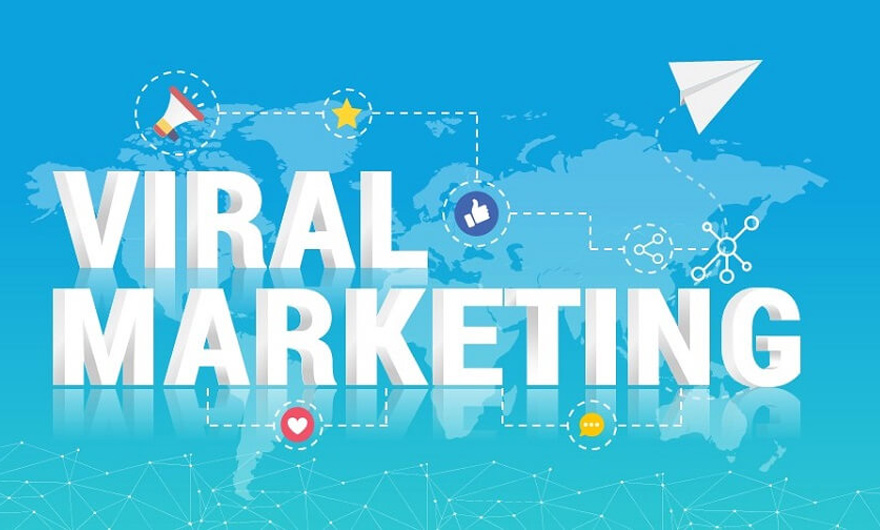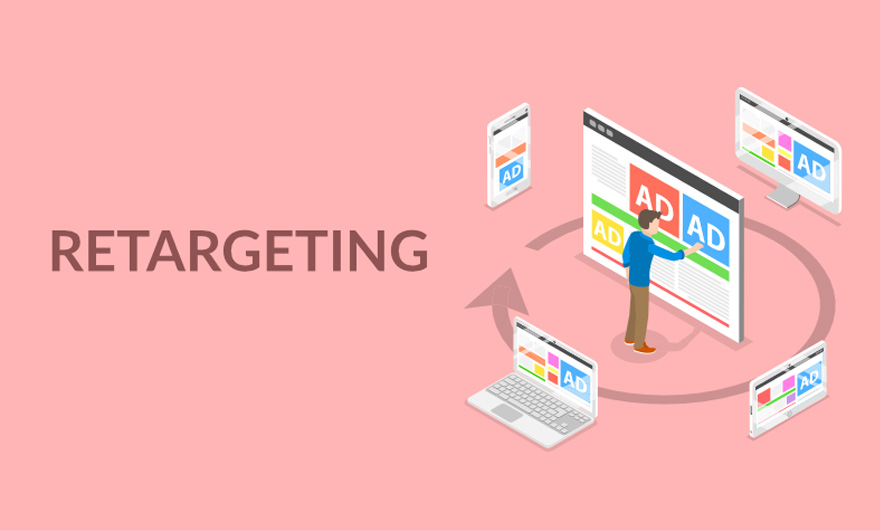Marketing support or marketing relies on the support ( Advocacy Marketing ) not so new way of advertising and marketing is the life of several years with little attention from companies and domestic manufacturers.
This type of marketing emphasizes the promotion of a company and its products by current customers, which will have a much higher effectiveness than one-sided brand advertising.
Definition of Advocacy Marketing
Advocacy marketing is a process and strategy that motivates employees and customers to share their passion for your company brand, products, services or experiences. These conversations are generated through social media, online surveys and word of mouth (WOM) marketing .
This process is a powerful way to increase brand awareness, increase sales, improve company credibility and even improve the emotions of people who want to work for your company. When employees and customers support your company, you have an extensive marketing team that you trust with your co-workers, family, friends and online networks.
However, a recent Nielsen study found that 83% of customers have the most confidence in the advice of friends and family. Also, 66% of them trust the opinions of customers they find online.
Types of Advocacy Marketing
When it comes to affiliate marketing, there are two major types of marketing that you can focus on: Employees and customers. What your organization decides to focus on depends entirely on your business goals and strategies. The best solution is to focus on both and really strengthen your brand.
- Employee support:
Employee Support is a form of pro-marketing that encourages employees to share and create content organically around the company in which they work to attract new business and top talent.
- Customer support:
Customer support is another type of marketing that encourages customers to share content and to expand the company’s reviews organically to increase awareness and sales.
What do you want from advertising? Fame or popularity?
One of the key points in the long-term success of an advertising program is the precise determination of the goals ahead. It may seem simple, but many marketers still have trouble with this.
- Short-term reputation
If your goal in advertising is to create a sudden enthusiasm among people to talk about your products, it is better to go to celebrities and influential people marketing (influencer marketing).
They can get your message across to people quickly, but you will probably be forgotten just as quickly as you are among people (actually just celebrity fans).
This does not mean that influencer marketing is useless, but it is costly and can only be cost-effective as long as it delivers the desired results.
- Long-term popularity
Building a sustainable community of fans (customers who support your brand and talk about it with others) takes a lot of effort, but it guarantees the long-term commitment and loyalty of your brand fans.
This powerful community forces your fans, staff and even colleagues to talk about you and your products like free advertising ambassadors.
Influencer Marketing vs Advocacy Marketing

Using one or both types of advocacy marketing can be much more effective than effective marketing. Think about it, employees and customers work closely with your company, products and services every day. The trust and influence of employees and customers is greater than you can imagine, even if their social followers are not more than 100,000.
This does not mean that effective marketing does not have its place, because it can also be a great way to quickly show your brand to a large audience. But affiliate marketing is a way to create a credible, and long-lasting impact that will help strengthen your brand. Effective marketing, on the other hand, has an immediate effect but is quickly neutralized to the point where you sometimes need to spend more money to get more impact.
What is good about affiliate marketing?
In addition to having your employees and customers create, share, and talk about your company, there is some powerful data to support the effectiveness of this marketing approach. For example:
- More than 90% of customers trust word-of-mouth (WOM) marketing advice more than any other type of marketing.
- Peer-to-peer marketing is the leading factor in 20-50% of purchasing decisions. (Quoted from McKinsey)
- Customers referred by other customers have a 37% longer retention rate.
- On average, brands have a return on investment of $ 650 per dollar invested in affiliate marketing.
- Content shared by employees is absorbed 8 times more than content shared by business channels. (Quoted from social media today)
- People admit that they trust content shared by “ordinary people” more than content shared by brands.
- Customer support has been shown to increase marketing effectiveness by up to 54%.
- Create a pro marketing strategy
To truly harness the power of this pro marketing, your organization needs to focus on these important points.
- Why do you want to include pro marketing?
- Before you really start launching a pro marketing strategy, you need to understand your “whys”. Is doing this another checkbox for your managers and team or just to make your product or service look better?
- Sure, your argument can be selfish, but your fan marketing should be a two-way street where your fans will benefit as well. Your organization should really care about providing great experiences to employees and customers. Trying to create a part-time strategy without being genuine will not give you the real results of affiliate marketing.
- Offer the best possible product or service.
Although this is obvious, we can not ignore it in the list. Without the best product, service or culture, customers and employees will not recommend your fans. A regular marketing plan can do great things for your employee experience or customer success. But a poor product, service, or work culture can be destructive to a pro-strategy.
Depending on how you provide the service or product in the right areas, the importance of customer satisfaction and adhering to the principles of pro-marketing, it will be much easier and more effective to show the right way to your sponsors.
- Focus on the customer experience.
Without your customers, you do not have a good job and business. simply. This means that the customer experience is one of the most important needs in how to deliver a product or service. The better these interactions and experiences, the easier it is to use a customer support strategy.
This process takes less time because you have customers who do not need extra encouragement to comment, create social posts about your brand, talk to others about your organization.
- Focus on the employee experience.
While pro-marketing may be more customer-centric, don’t forget the impact your employees can have on your brand. They have the right information about your organization to share on social media to make your business known.

- But if you do not take into account the excellent work culture, creating an atmosphere of professional development and real care for your co-workers, you will see employees who are actively leaving their jobs, focusing on other issues and withdrawing from your support.
- When organizations pay attention to employee experience, they can achieve twice as much customer satisfaction and innovation as before, which results in 25% more profit.
- Create an attractive brand.
Ask yourself, what attracts you most to a brand? There are probably a lot of features in a company that you are looking for, but does their brand make you want to support them? In addition to putting yourself in the customer’s shoes, be sure to consider how employees feel.
Building an attractive brand is not an easy task, as creating multiple departments and leadership to create an environment and brand is essential for people to connect with it beyond a great product or service. This does not mean that your company has to do it perfectly on the first day, but to make more emotional connections, you have to work hard.
- Find current fans and learn from them.
Your company probably already has fans who talk about your brand online. Even without you realizing it. Loyal customers are the most prominent fans. For review, tagging a company on social media can show you an indication of their experiences.
But employees also talk about your brand online. 98% of employees use at least one social media site for personal use, 50% of whom have already posted about their company. (Quoted from Weber Shandivik).
Spend your time identifying customer fans and employee fans through social listening, reviewing sites or polls (internal and customer feedback). These can help you understand the opinions of those who support or reject your company and then be able to run more effective marketing campaigns or programs later.
Concluding remarks
Isn’t it time for your business to focus on increasing satisfied customers instead of focusing on increasing sales?
Every satisfied customer will be a brand ambassador for you in the city, country and even the world who can market to you for free and drive new customers to your business without your knowledge.
Ultimately, affiliate marketing allows existing customers to share their positive experience with your company with others. This will encourage the most enthusiastic customers to join your brand voice and thus bring you more business.
This process will never end and every satisfied customer, in addition to repeating their purchase, will bring you new customers and this is the ultimate goal of all marketing strategies…







Leave feedback about this
You must be logged in to post a comment.